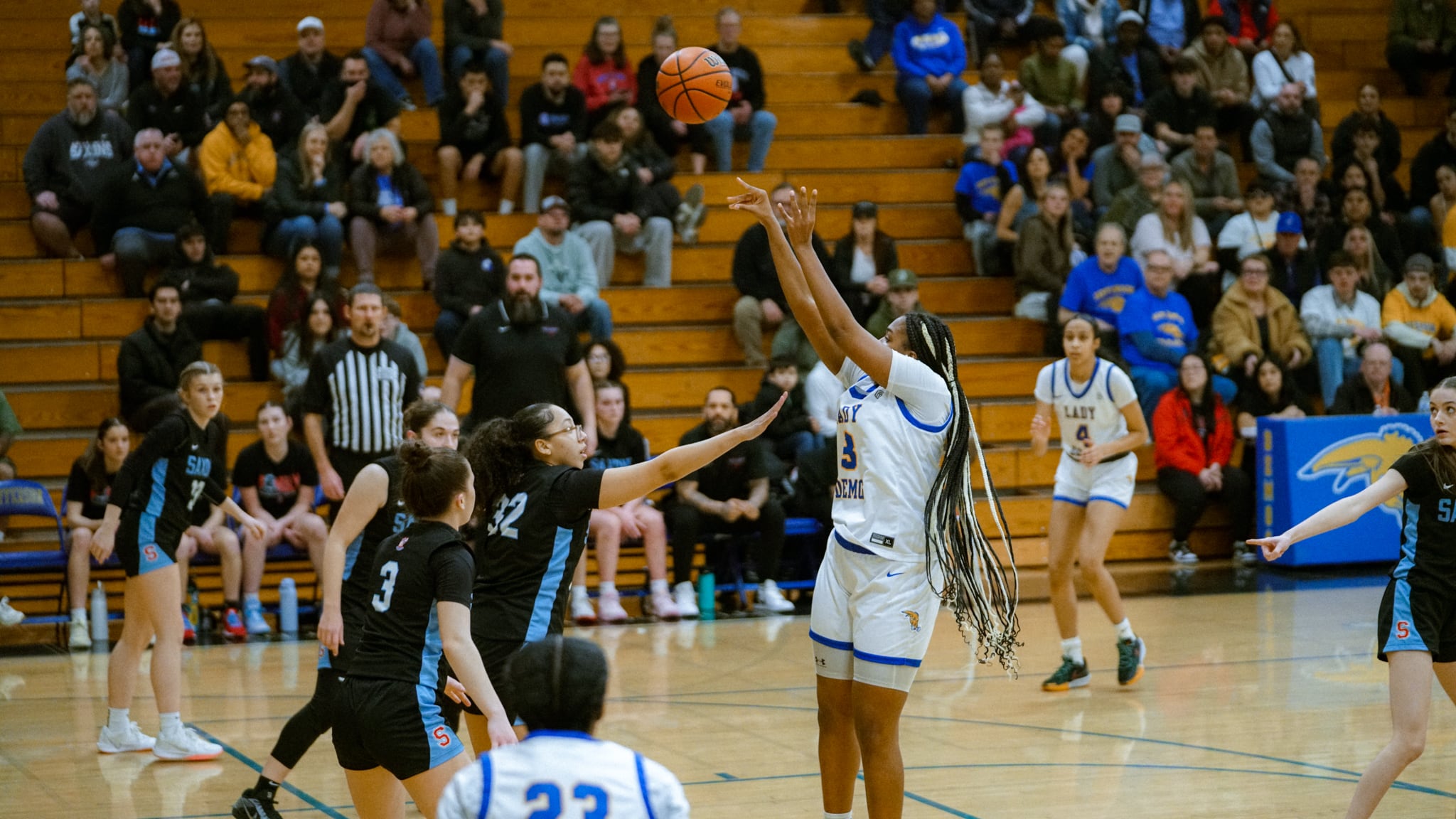Maddie Snyder is a senior at Catlin Gabel High School, covering youth sports in the Portland area from a student perspective. This story is part of an initiative by WW to develop young voices in journalism.
On July 15, the WNBA’s Portland expansion team announced to a crowded courtyard in the Rose Quarter that the Portland Fire would be returning to the Rose City.
It’s been more than 20 years since Portland was home to a WNBA franchise, and although media hype is high, there is one unfortunate new phenomenon:
The Portland Fire are returning to a city where girls aren’t playing as much high school basketball.
All school sports participation dropped when the COVID-19 pandemic hit in 2020, but girls basketball has had a particularly tough time regaining numbers.
For the 2021–22 season, the Oregon School Activities Association listed 5,607 girls basketball players statewide. Four years later, participation in the sport has dropped 5.5%, a loss of more than 300 players.
For the sake of comparison, girls volleyball is on the rise, now totaling 7,400 participants, and boys basketball is back at pre-COVID levels.
“It’s not so much about girls not playing [basketball] as playing something else,” says Missy Smith, the OSAA’s assistant executive director.
Smith is a member of the National Federation of State High School Associations’ basketball rules committee. At a recent conference in Indiana, she learned that the problem with girls basketball in Oregon is part of a national trend, even with the massive increase in WNBA viewership.
“No one is panicking, but we’re paying attention to it,” Smith says.
Hayley Schauff, a senior at Catlin Gabel High School, dropped basketball for volleyball in 2022. “You have to love the lows of basketball,” Schauff explains, and she’d wearied of those elbows in the low post. She also liked that girls volleyball is far more popular than the boys’ game in both high school and college.
Smith blames the pandemic for the falloff in girls basketball. COVID sidelined many athletes, and hoop stars had a tough time making a comeback. “It’s a hard [sport] to just show up and be good at,” Smith says, “and I think a lot of girls don’t want to play something they’re not good at.”
Southridge High School coach Michael Bergmann says he “definitely has noticed a drop-off in participation in all the schools” in the Metro League. It’s now difficult to fill junior varsity and JV2 rosters, Bergmann says, and coaches sometimes need freshmen to round out the varsity squads.
“You want to make sure that you have the right combination so that each team can be as competitive as possible, and each kid can develop accordingly,” says Sunset High School coach Devarieous Sly-Clay, and that’s increasingly difficult. Sunset started the 2024–25 season with 30 girls divided among three squads, but ended up with two teams because so many girls dropped the sport.
Basketball, the coaches argue, is a demanding sport, with a long season that spans winter break and midterms. “Once a team loses its junior varsity, it is almost impossible to build one back,” Smith says.
Camas High School seniors Makenna Lee and Kadryna Green were on the team that won the Washington state Class 4A title in 2024. They continue to believe that lack of respect for the girls’ team has discouraged new players from joining. While watching from the stands at a summer league game, Lee remembers, “The boys in the crowd were like, ‘I’m never going to another girls’ game again.’”
Both Lee and Green hope the incoming WNBA team will not only encourage girls to play but also boost respect for the game in general.
Sly-Clay used to attend Portland Fire games when the team played from 2000 to 2002. He believes the return of the major sports franchise is a massive opportunity for the sport to make gains at the youth level, the root of the success in the girls’ programs at West Linn, Clackamas and Oregon City.
“I think that [the Fire] is going to get more kids wanting to do those sports, getting to see more people like them in positions of success,” Sly-Clay says. “I think it’s huge.”
As interim Portland Fire team president Clare Hamill said, “You can’t be what you can’t see.”

